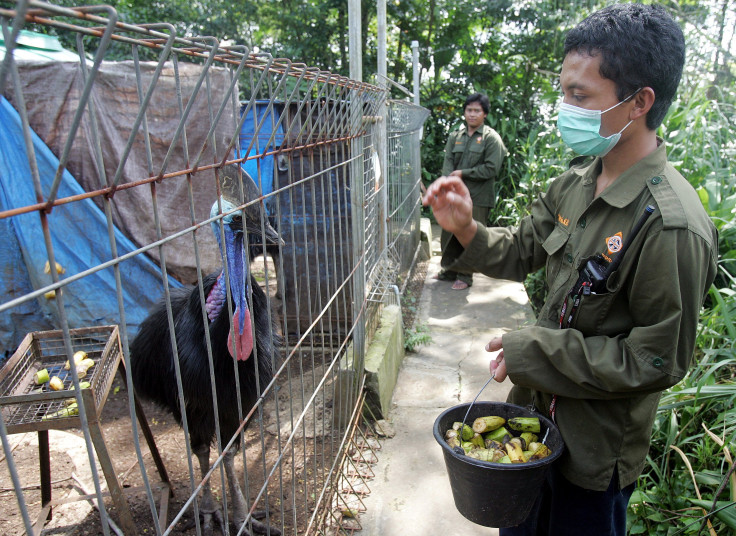Cassowaries are best left alone; Authorities urge people not to feed them post Queensland attack

A cassowary has been relocated by wildlife officers after it attacked a man in far north Queensland. The man was attacked on Aug. 8 near Tully. However, he escaped with only minor cuts and bruises and no serious injuries, the Department of Environment and Heritage Protection revealed. The reason why it attacked is not fully known but it is believed it got aggressive after it was not provided with food.
The cassowary may have become used to being fed by humans but attacked when food was not provided. As per News.com.au, the male cassowary was reported to be attacking windows of houses and was a regular visitor to the area. Rangers had to sedate the bird and they kept it overnight at the Garners Beach Cassowary Rehabilitation Centre in a specially designed cassowary transport box.
On Aug. 10, the cassowary was released into a remote section of Wooroonooran National Park between Innisfail and Cairns. The Department of Environment and Heritage Protection has urged people to not feed the beautiful but endangered birds. The man this cassowary attacked was lucky to escape without being seriously injured. Dr. Graham Lauridsen, Tully veterinarian, described previous attacks as “significant events.”
Cassowaries that come in regular contact with people tend to be more aggressive. Experts urged people visiting cassowary territory or living in it to protect the endangered animals by retaining vegetation on their properties as cassowary feeding grounds. People should also be careful while driving and slow down if a cassowary crosses path. Avoiding them is the best way to leave them at peace.
Those having dogs as pets should restrain their dogs from having any interaction with the cassowaries. They should be allowed to find their own foods.
“It’s not like because they’re wandering past somebody and see them and want to bash them up. It’s normally to do with a feeding issue. They think people are a food source; they come in and get a bit cranky. Don’t feed them, and enjoy them from a distance,” Lauridsen told The Daily Telegraph.





















